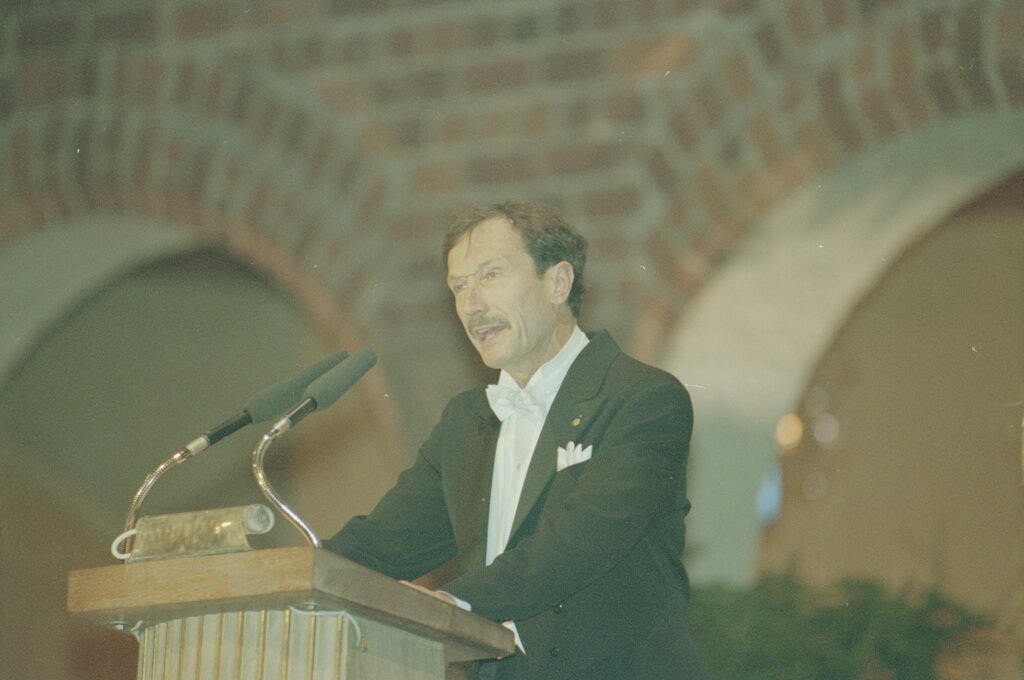Rolf M. Zinkernagel
Banquet speech

Rolf M. Zinkernagel’s speech at the Nobel Banquet, December 10, 1996
Your Majesties, Your Royal Highness, Ladies and Gentlemen,
May I express Peter Doherty’s and my own gratitude for having been chosen among many immunologists to share this true high point in our careers as researchers, and may I convey our admiration and respect to Alfred Nobel who died 100 years ago. This is a very special day to commemorate.
When I arrived in Canberra in 1973, Peter Doherty greeted me with the usual Australian confusion: Switzerland? I know, sure, I like Sweden, I sure would once like to go to Stockholm. That we are now both together with our families and mentors here in Stockholm gives us the greatest pleasure of our life.
Why are we both in Stockholm? I suppose because Peter and I, as young 30-year old post-docs had no fixed ideas about the immunological mechanisms at work and little respect for dogmas.
As you know, in science there are collectors, classifiers, compulsory tidiers-up and permanent contestors, detectives, some artists and many artisans, there are poet-scientists and philosophers and even a few mystics. Peter is a Celt and a true Australian and to the chagrin of his wife and of mine, he is a mystic. I am very Swiss and to the chagrin of my family, I am a true collector. We are both a bit crazy, which is necessary, but not sufficient to do science but – we think – that we are both kept reasonably sane by our wives, children and collaborators.
To ask questions, to search for answers, to do research – I mean re-search in nature, what is already there, but has not been revealed so far is the most fascinating and the most exciting thing we can dream of doing and what we would like to continue doing. We researchers are a bit like musicians – and the Nobel Foundation and this assembly tell us we are reasonably good musicians – who are re-creating as best as possible what true creators, as a Mozart or Rossini once have conceived. Peter, let us face it: We have been very lucky! Had we not found the rules of restricted immune T cell recognition, somebody else would have later. Without Isaak Stern or Luciano Pavarotti, we would still have Mozart’s violin concerto or Don Giovanni, but we all recognise that without Mozart The Enchanted Flute would not exist.
To have had the unique chance to find something we did not know before and to be recognised for this here today is a great moment for both of us.
We thank the Nobel Foundation for bestowing this prize upon us. This honours not only us, but basic research and a high human good that needs our full support. That is the urge to find out more about the basic principles of nature and disease.
Nobel Prizes and laureates
See them all presented here.
